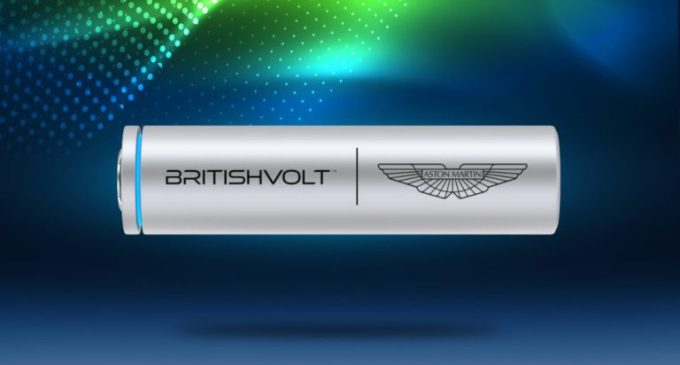Two British engineering leaders combine to co-create future battery technology

Aston Martin has moved another step forward in its journey to electrification, with an agreement to develop bespoke high performance battery cell technology alongside Britishvolt. The collaboration, formalised in a Memorandum of Understanding, further supports the ultra-luxury manufacturer’s plans to launch its first battery electric vehicle in 2025, with Aston Martin targeting new standards of repeatable on-track performance, charging time and range, as it brings its renown for engineering mastery, beautiful design and extreme personalisation to all-electric driving.
The collaboration with Britishvolt, the UK’s foremost investor in lithium-ion battery cell technologies, brings together two innovative leaders in UK engineering to create the next generation of cell and battery technology designed specifically for high performance cars.
A joint research and development team from Aston Martin and Britishvolt will design, develop, and industrialise battery packs, including bespoke modules and a battery management system. The two organisations will work together to maximise the capability of special cylindrical high performance cells being developed by Britishvolt for use in high performance Aston Martin electric vehicles.
Aston Martin is developing alternatives to the internal combustion engine. Continuing its electrification roadmap, Aston Martin’s first plug-in hybrid – the mid-engine supercar Valhalla – will commence deliveries in early 2024. By 2026, all new Aston Martin product lines will have an electrified powertrain option, with a target for its core portfolio to be fully electrified by 2030.
The collaboration with Britishvolt is complementary to Aston Martin’s strategic technology agreement with Mercedes-Benz AG. Any investment will be funded by existing capital expenditure commitments to developing electric vehicles.
Tobias Moers, Chief Executive Officer of Aston Martin Lagonda, said: “This powerful collaboration combines Aston Martin’s 109 years of engineering mastery with the expertise of a fast-growing UK technology business. Working together with Britishvolt, I believe we can create new technologies to power benchmark-setting Aston Martin electric cars that will match our reputation for high performance and ultra-luxury with the highest standards of sustainability.
“Supplementing the close strategic relationship with our shareholder Mercedes-Benz AG, this partnership provides Aston Martin with additional access to technology and skills to broaden our electrification options. We are proud to be partnering with a UK-based, low-carbon battery manufacturer as part of our ambition to be a leading sustainable ultra-luxury business, with a commitment to the Science Based Targets initiative Net-Zero standard.”
Orral Nadjari, Chief Executive Officer and Founder of Britishvolt, said: “For a prestigious marque such as Aston Martin, staying true to its world-renowned brand of ultra-luxury, high-performance vehicles, whilst transitioning to electrification, means insisting on customised, sustainable battery cell technology that pushes the boundaries of performance. Britishvolt is excited to be collaborating with Aston Martin, helping accelerate that switch to electrification – I believe we make formidable partners.
“This collaboration once again highlights the value of working hand-in-glove with customers to co-develop and manufacture tailored, sustainable, localised battery cells, allowing vehicle makers to deliver superior products. Technologies that reset the benchmarks.
“We are excited about the prospect of an all-electric Aston Martin powered by Britishvolt’s low carbon, sustainable battery cells. Collaboration like this is the only way forward for a successful energy transition.”
The announcement builds on Aston Martin’s continued investment in the future of British advanced engineering and developing the high performance cars of the future. 176 engineers were recruited to the business in 2021, including specialists in electrified powertrain and other areas such as vehicle calibration, software, and electrical systems. Further additions are planned as part of a new drive to attract the best talent to develop Aston Martin’s next generation of sports cars and future electric vehicles.


























